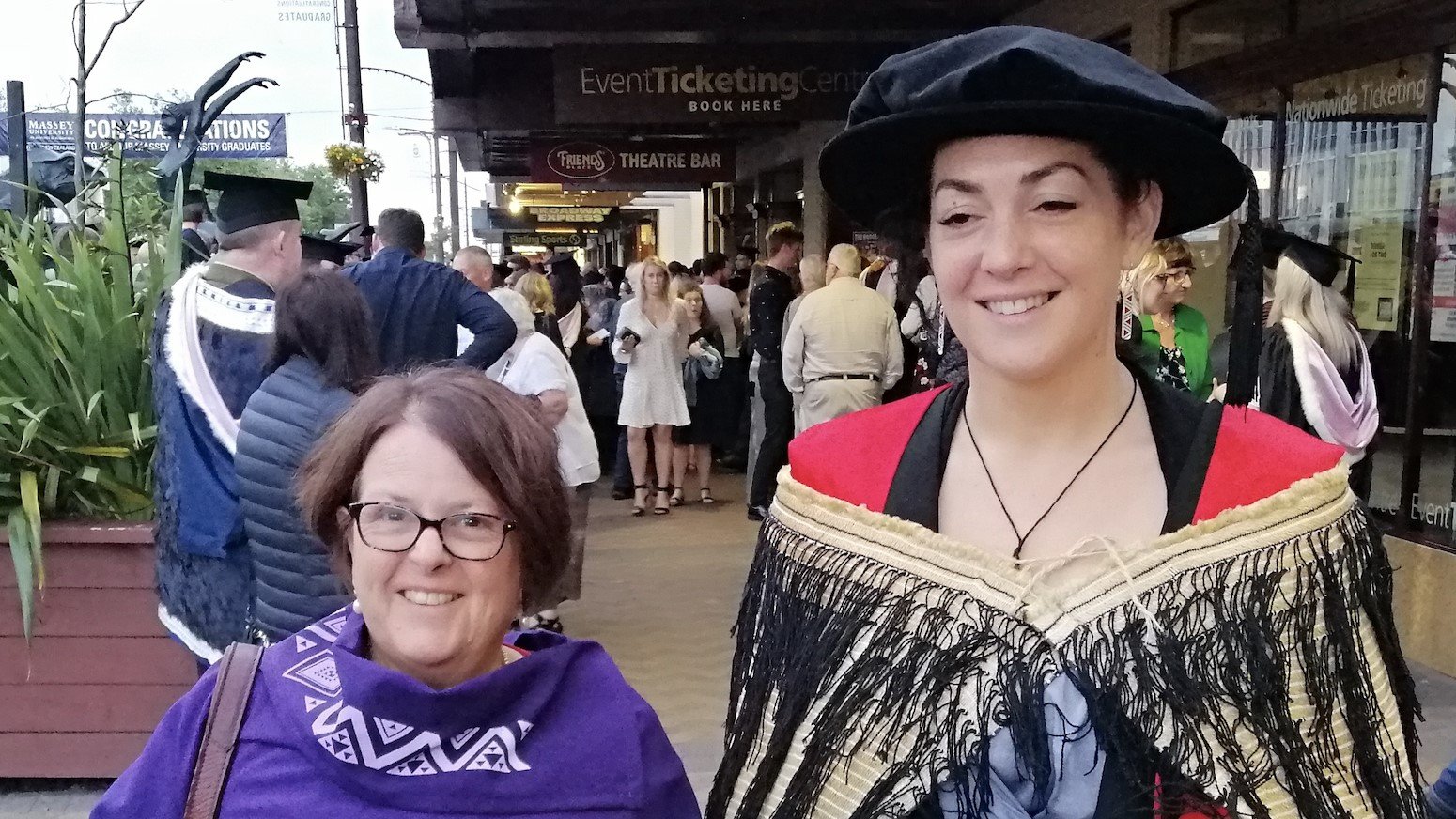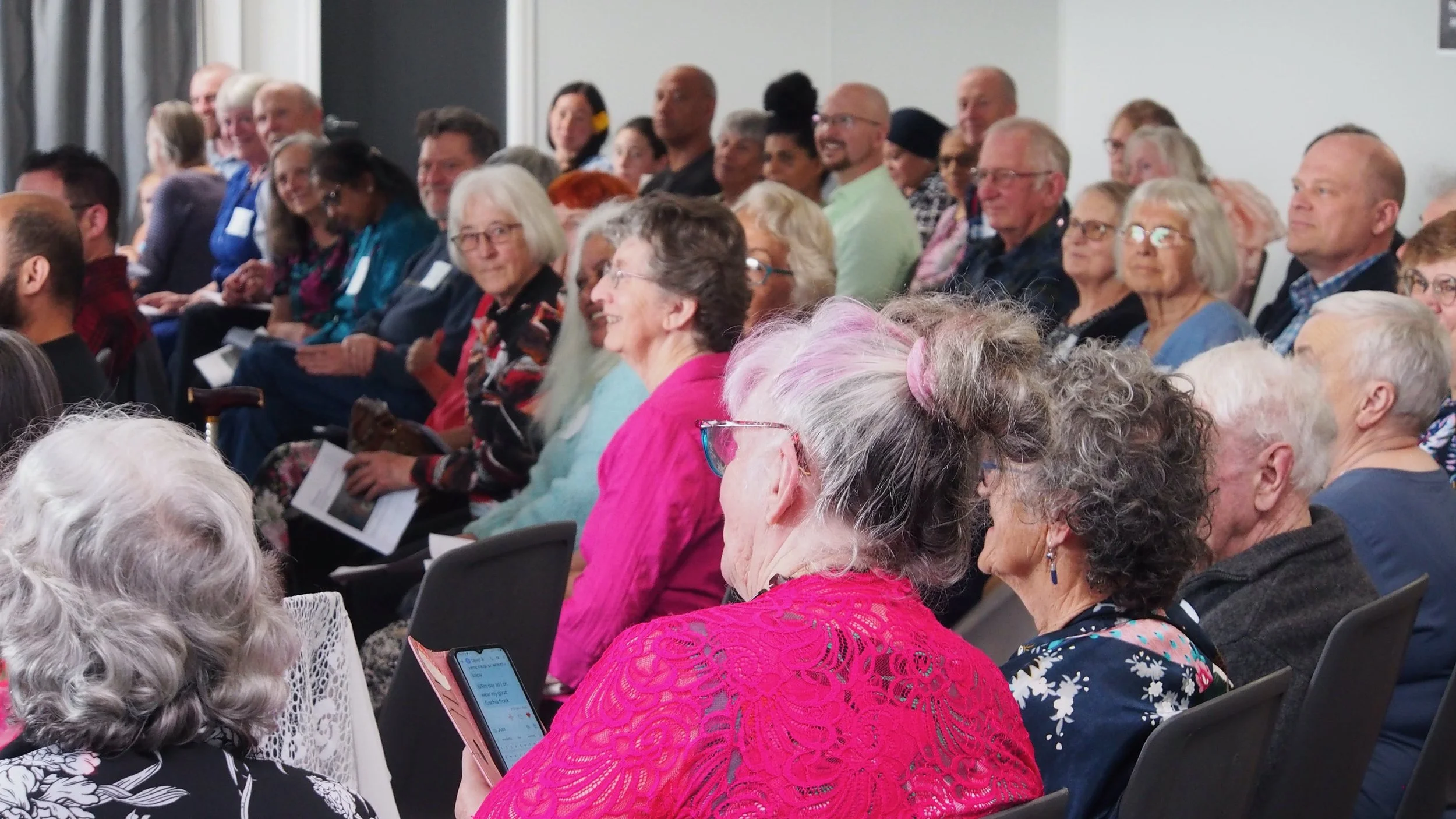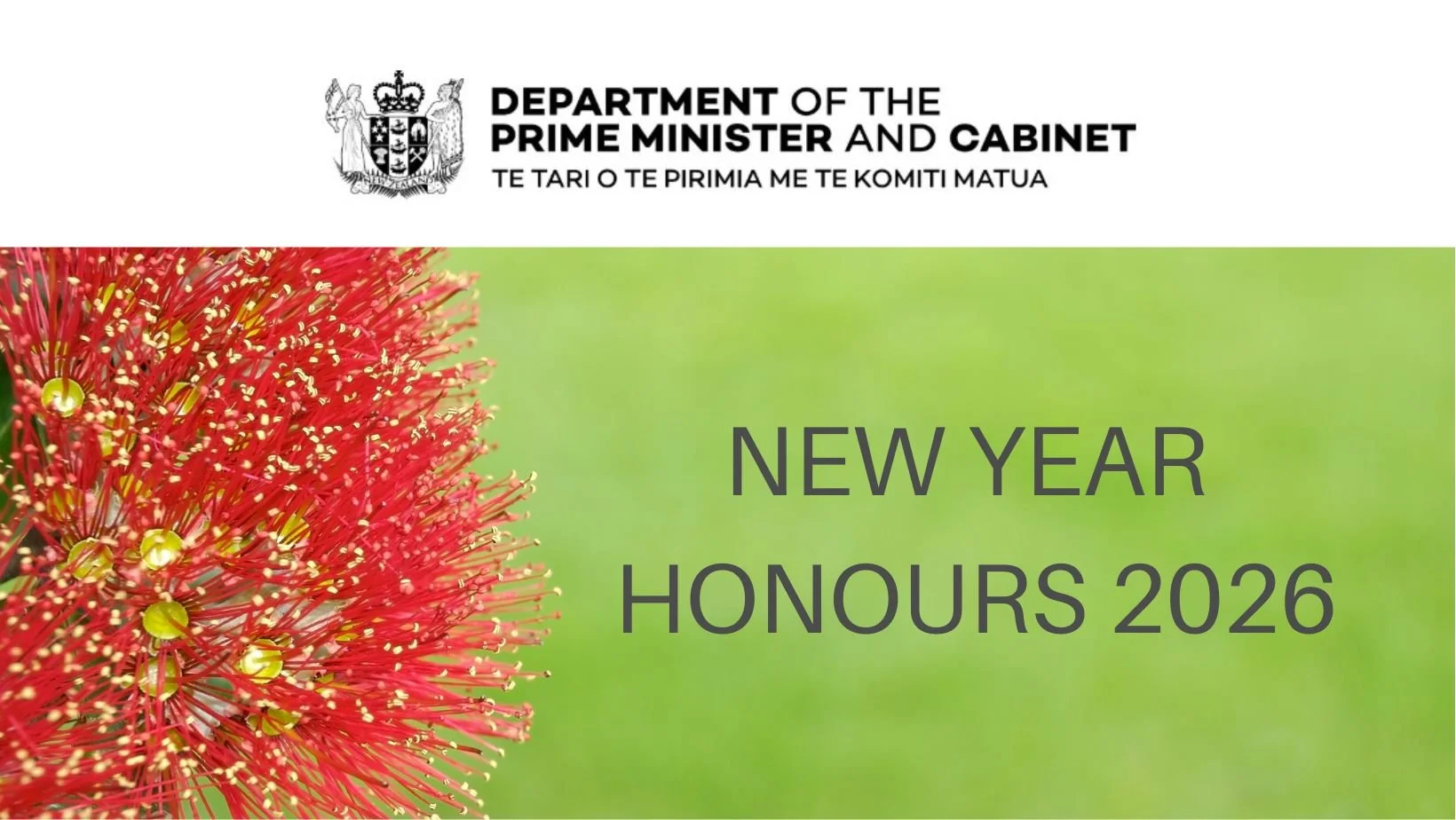A trailblazer in Māori research and scholarship
Dr Veronica Tawhai’s contributions through research have exemplified the Bahá’í ideals of striving for excellence and service to humanity, and in particular, her contributions to the field of indigenous scholarship have earned her well-deserved recognition.
Dr Veronia Tawhai with her mother, Pamela Tawhai.
In the realm of indigenous research, Dr Veronica Tawhai (Ngāti Porou, Ngāti Uepōhatu), a lecturer at the University of Massey and a member of the Bahá'í community of Palmerston North, has recently been appointed as Fellow in Academy for Māori research and Scholarship – Te Mata o te Tau, an organisation operating through Massey University, that brings together Māori scholars from a range of disciplines, departments and research centres and aims to promote Māori academic advancement in Aotearoa New Zealand, and internationally. This acknowledgement is a testament to Dr Tawhai’s remarkable achievements in the field, and her unwavering commitment to the betterment of Māori communities and indigenous knowledge.
Dr Tawhai has an extensive portfolio of achievements, including co-editing two books, writing several papers and presenting widely on these issues, as well as completing her PhD on the role of citizenship education in transforming indigenous-coloniser relations. However, it has been her pioneering work on indigenous governance and constitutional law that has been particularly influential. Her expertise in this area has been instrumental in advancing discussions around the recognition and protection of Māori rights within the constitutional framework of Aotearoa New Zealand. Her research has contributed to the ongoing dialogue about how to honour the Treaty of Waitangi, and ensure its principles are understood and acknowledged in contemporary society.
Rooted in the Bahá'í teachings of the oneness of humanity, Dr Tawhai’s research is driven by a strong sense of social responsibility and a dedication to the welfare of not only the Māori community but all of humanity. Her scholarly pursuits, with a focus on indigenous rights, governance, and social justice, align closely with the Bahá'í principles of eliminating prejudice and advancing the cause of justice. Her work to date and her appointment as a Fellow in Academy for Māori research and Scholarship – Te Mata o te Tau, exemplifies how one’s Faith can serve as a guiding force, inspiring research and advocacy that seek to create a more equitable and harmonious world.
As we celebrate Dr Tawhai’s achievements, we also acknowledge the importance of supporting and uplifting indigenous scholars like her who are instrumental in shaping a more just world for all. Dr Tawhai is the daughter of the late Te Pakaka Tawhai, also a scholar linked with Massey University who was a serving member of the National Spiritual Assembly of the Bahá'ís of New Zealand (Te Rūnanga Wairua Tapu o ngā Bahá'í o Aotearoa) at the time of his passing. His widow, Dr Tawhai’s mother and a long-standing Bahá'í, is Mrs Pamela Tawhai.







